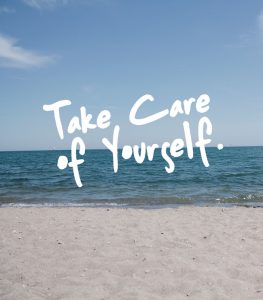 The best risk management advice I will ever have to offer is simply this. Don’t ever forget to take care of yourself. I know it sounds simple; but for so many, it isn’t easy. I really do believe that taking this advice to heart can not only make a world of difference in every lawyer’s personal and profession life, it can also be an effective risk management tool.
The best risk management advice I will ever have to offer is simply this. Don’t ever forget to take care of yourself. I know it sounds simple; but for so many, it isn’t easy. I really do believe that taking this advice to heart can not only make a world of difference in every lawyer’s personal and profession life, it can also be an effective risk management tool.
Understand that stress-related physical health issues, addictions, and even mental illness (particularly depression) are significant problems within the legal profession; and speaking personally, I believe these kinds of problems arise, in no small part, due to lawyers struggling with prioritizing taking care of themselves. For example, during more than a few law firm risk visits with solo lawyers over the years, I have had an employee ask me to talk with the lawyer with the hope of helping him or her learn to say “no” so that his or her workload might finally drop to a more reasonable level. These employees were always concerned about the lawyer’s overall well-being in light of an unreasonably heavy workload that was self-inflicted. In other situations, I have had a number of lawyer spouses, who also were employed by their spouses, ask me to let their husband or wife know that from my perspective (as a risk manager) taking a vacation is a good thing. In every one of these visits, someone was simply concerned about what might happen because the lawyer they cared about wasn’t doing a very good job of taking care of himself or herself, as the case may be.
I have also spent time on the phone with a solo lawyer who was unable to make a decision and thus unable to work any further on a matter that had a deadline only hours away. His personal stress level had reached a point where indecisiveness and immobility were the eventual outcome. He simply could go no further and he literally walked out of his office later that day and never returned. Unfortunately, this response of immobility is not as uncommon as you might think.
Absent prioritizing wellness in our personal and professional lives, all kinds of risks potentially come into play to include stress, burnout, indecisiveness, apathy, forgetfulness, and/or a loss of the various types of personal and emotional support systems upon which we rely to function effectively. Any one or combination of these risks can easily create a situation that is ripe for professional negligence or worse.
So, what does “taking care of yourself” exactly mean? For me, it means eating right and trying to find time to exercise at least three or four times a week. It means doing what I can to leave work issues at the office so that when I have time with my family, I can fully invest in them. I have come to learn the importance of not jeopardizing my relationships with any of my most valued and effective support systems because I hope to always have them present in my life.
All opinions, advice, and experiences of guest bloggers/columnists are those of the author and do not necessarily reflect the opinions, practices or experiences of Solo Practice University®.





















Comments are closed automatically 60 days after the post is published.